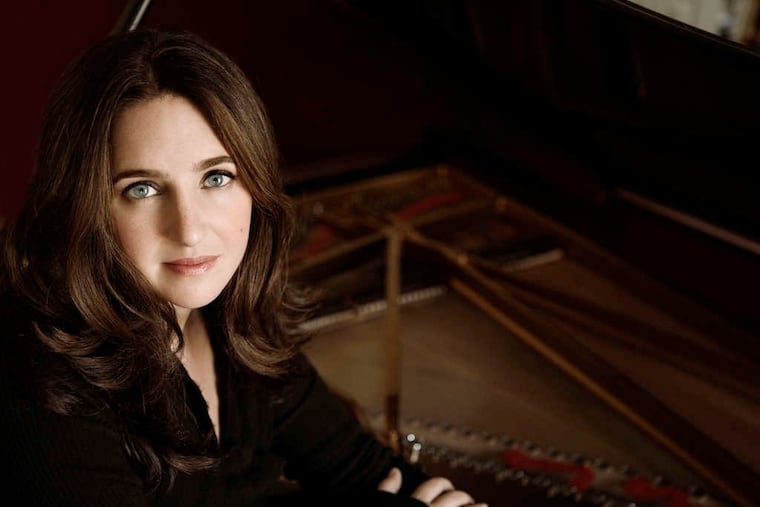Expressive and thrilling, Simone Dinnerstein performs Bach and Glass with the Chamber Orchestra
The pianist added a sense of occasion to the Chamber Orchestra of Philadelphia's latest live concert at the Kimmel.

If you thought the two concertos on the Chamber Orchestra of Philadelphia’s program Monday night might leave the soloist only enough room to color between the lines, you’d be right.
But what a soloist. And what colors.
Bach and Glass are about patterns and formal structure. Within the rigor, though, Simone Dinnerstein found a great deal of joy and liberation.
The Brooklyn-based pianist is among the Chamber Orchestra’s more intriguing soloists this season. The group restarted its live series at the Kimmel Center last month with Beethoven and a premiere by Nathan Bales. Monday’s concert marked an end: It was the last for Miles B. Davis, the double bass player who has retired after a 45-year run with the group.
History buffs will remember Dinnerstein. She was taken under the wing of Philadelphia’s Astral Artists more than two decades ago and has proved an intrepid artistic personality. In a way, the two concertos she played at the Perelman with about 20 string players was an act of modesty. Romantic repertoire leaves a huge opening for an artistic stamp. Not so in Bach and Glass.
Music director Dirk Brossé was on the podium, and — after a kind of curtain-raiser with Jessie Montgomery’s Strum — conductor and soloist seemed aligned in their vision of both concertos. Dinnerstein loves momentum. She pushed through phrases with a sense of an ultimate destination in Bach’s Keyboard Concerto No. 7, BWV 1058. She took advantage of playing on a Steinway grand, shading dynamics. And she was beautifully expressive within bounds. The third movement was an absolute thrill — the flash-elegance of her ornaments and the fluidity of her finger work.
Dinnerstein brought authority to Philip Glass’ Piano Concerto No. 3, not only since it was written for her, but also because she has performed it dozens of times. You couldn’t help thinking that all of her hard work in the piece might not be immediately apparent; the part never lets up — it has the repetition of an etude.
But we were the beneficiaries of its mesmerizing spell. The first few minutes feel like a perpetual sunrise, and later the piece takes on a sweet-sad hue. There’s comfort in its unfolding patterns of familiar harmonic change. Like a lot of Glass’ music, the concerto always seems to be pushing toward the horizon, which is never a bad place to be.